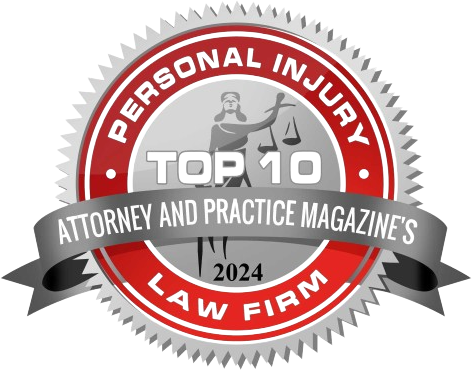

Wills & Trusts Attorneys in Virginia Beach
Estate planning is an important issue for everyone to consider. What do you want to happen to your belongings after you are gone? What will happen to you or your family if you become incapacitated because of illness or an injury? An estate plan allows you to address these and other questions. You can leave instructions for how to distribute your assets. If you have minor children, you can make arrangements for their care and support. By putting your wishes in writing in a series of legal documents, a thorough estate plan will help your loved ones during their time of grief. Every estate plan is unique. An estate planning lawyer can draft a plan tailored to your specific needs. Montagna Law handles a wide range of matters involving trusts and estates for people in Virginia Beach. They can determine what legal documents you need and work with you to create a thorough estate plan that protects you, your family, and your assets.
Call (877) 622-8100 or complete the online contact form to request a free consultation.
Put our decades of experience on your side.
-
If you’re looking for someone who’s professional, attentive, serious, caring, and negotiable than Mr. Anthony Montagna is who you need. He understood his assignment and delivered well especially being with what I was looking at in my case. I want …– Tiara S.
-
I don’t know how he does it, but this man is a monster in the courtroom. I’ll admit I had fears of the outcome of my case, but when I was with Mr. Montagna in front of a judge. My confidence started to raise. Extremely professional and how he hand…– BD P.
-
Honestly , Mr. Montagna treats like you are his family the way he cares, he takes care of his people , I was doing triple digit speed on a 60 and lord I thought it was over for me in that courtroom , he’s a genius because I literally got away with…– Justin
-
I have been a client of Montagna Law since 2014. Because the customer service is exceptional, I have established a rapport with everyone in the office. As a customer for 8 years, it is noted that this firm goes above and beyond for the clients.– Eric E.
-
Montagna Law are wonderful attorneys. I was diagnosed with stage 4 lung cancer and they assisted me from day one when I contacted them. I highly recommend their services! Thanks guy’s and gal’s for your services!– Kevin B
Do You Know Where Your Assets Are Going?
Some people associate the term “estate planning” almost exclusively with people who own a substantial amount of property and are getting on in years. Estate planning is not solely an “elder law” practice area, though, nor is it limited to people with significant net worth built over several decades. Almost everyone has an estate in some form. It is never too early to consider what you want to do with your estate should something happen to you. No one likes to think about these questions, but they are essential.
Your estate includes any of the following that you own:
- Cash
- Personal property, such as furniture, clothing, and electronics
- Jewelry
- Pets
- Checking and savings accounts
- Retirement accounts
- Stocks, bonds, and other investments
- Vehicles
- Homes or other real estate
- Business equity
Your will can direct what will happen to these assets after your death. You must name someone as your executor or administrator to distribute your assets according to your wishes.
If you owe any debts, they will also be part of your estate. In most cases, your executor will be responsible for paying them out of the assets in your estate.
Planning for the distribution of your belongings is only one part of the estate planning process. Your estate plan may include numerous legal documents, such as the following:
- Last will and testament: This document names an executor for your estate, leaves property to your heirs, and makes other arrangements, such as naming a guardian for your minor children.
- Living trust: Also known as an inter vivos trust, this creates an entity that holds property during your life and transfers it to your heirs after your death. Unlike a will, a living trust does not have to go through the probate process.
- Living will: This document, also known as an advance medical directive, informs medical providers what kind of health care treatment you do and do not want if you can no longer state your wishes.
- Power of attorney: This names someone with the legal authority to act on your behalf if you become incapacitated or cannot make decisions independently. A power of attorney could give someone authority to make financial decisions, medical decisions, or both. It could take effect immediately or only once you become incapacitated.
You might not need all the documents described above, but some are advisable for almost everyone. If you die without a will, your assets can become stuck in the legal system for years, creating significant problems for your heirs.
What Does It Mean to Die Intestate in Virginia Beach?

Dying without a valid last will and testament is known as dying “intestate.” Your estate will enter probate, and a court will determine how to distribute your assets according to Virginia law. It will also make decisions about issues like guardianship or conservatorship for your minor children.
In an intestate probate case, the court will appoint someone as the administrator of your estate. It will be someone identified as an heir by state law. If you have multiple heirs who cannot agree on who should serve as administrator, the court will choose someone.
Virginia law states that the following people may inherit the assets of someone who dies intestate (the “decedent”):
- 100% goes to the surviving spouse.
- If the decedent has children from another relationship, ⅓ goes to the surviving spouse and ⅔ to the children
- If the decedent has no surviving spouse, 100% goes to the children and their descendants
- If no children exist, the estate goes to the decedent’s parents
- If neither parent is alive, the estate is distributed equally among the decedent’s siblings and their descendants
- If the decedent has no living siblings, nephews, or nieces, state law provides for distribution to other relatives, such as aunts, uncles, and cousins
What is the Difference Between a Will and a Trust?
For Virginia Beach families, wills and trusts are both important parts of an estate plan. Every estate plan needs a will, but not every plan needs to have a trust.
Trusts
A living trust allows you to keep some of your assets out of probate court. You transfer those assets to the trust during your life. You still have the use of those assets, such as real estate, investments, or business equity, even though you no longer own them in your name. Some assets, such as retirement accounts and insurance policies, are ineligible for transfer to a trust.
A trustee is responsible for managing the trust. You can name yourself the trustee so long as you name a successor who will take over when you die. That trustee will be responsible for distributing the trust’s assets to the beneficiaries that you designated in the trust document.
Wills
You need a will to distribute assets you cannot put into a trust. While a living trust can take effect as soon as you sign it, a will does not have legal force until you die. The person you name as your administrator must file a petition in probate court. The court will approve the will or hear objections to it and then oversee the estate administration process.
Different Types of Trusts Available in Virginia Beach

Several different types of trusts are available for estate plans in Virginia Beach.
Irrevocable Trusts
An irrevocable trust is a living trust you cannot change or revoke once you have created it. If you transfer assets to the trust, you cannot transfer them back into your name. This might seem harsh, but it can be beneficial for asset protection and tax planning. Removing those assets from your estate can protect them from creditors and estate tax calculations.
Revocable Trusts
A revocable trust offers more flexibility. You can change the terms of the trust, move assets around, or revoke the trust altogether during your lifetime. The trust only becomes irrevocable upon your death.
Special Needs Trust
This type of trust provides financial support for someone with a disability while allowing them to maintain eligibility for public services like Medicaid. You can create a first-party special needs trust to support yourself or a third-party special needs trust to provide care for someone else.
Trusts for Minors
You can create a trust that lets you set assets aside for your minor children or grandchildren outside of the probate system. This trust can ensure that money will be available for the children to pay for school, health care, or other needs.
Are You Ready to Personalize Your Virginia Beach Will?
You can create your own will using various online resources, but that will likely only cover some issues you must address with your estate plan. The attorneys at Montagna Law are here to guide you through every step of the process. Whether you have a vast amount of assets or need to be sure your minor children will have the support they need when your time comes, we are ready to tailor your plan to your needs.
Make Sure You Have a Say in Where Your Assets Go
Our Virginia Beach estate planning attorneys are prepared to assist anyone in the Hampton Roads area who wants to create a new estate plan or update an existing one. You can request a consultation today by calling 757-622-8100 or completing our law firm’s online contact form.
*The consult fee is $50 for up to ½ hr phone consults and $100 for up to 1 hr in-person consults. These consult fees are then applied to the retainer if the client retains us within 30 days of the initial consult.

VIRGINIA BEACH: 757-622-6851
TOLL-FREE: 877-622-8100
Hours of Operation: M-F 9:00 am – 5:00 pm
The Attorneys at Montagna Law Are Always Here For You
Our team of Virginia Beach personal injury lawyers has decades of combined experience representing victims of workplace accidents, car accidents, truck accidents, premises liability, wrongful death, social security disputes, and much more. We know what it takes to get you the compensation you deserve and we’ll fight for your rights in and out of court.
Visit Our Office
Virginia Beach, Virginia 23462
can help you solve your legal problems.








